Kenya’s Supreme Court Defiantly Rejects Afro-Pessimistic Election Media Praise
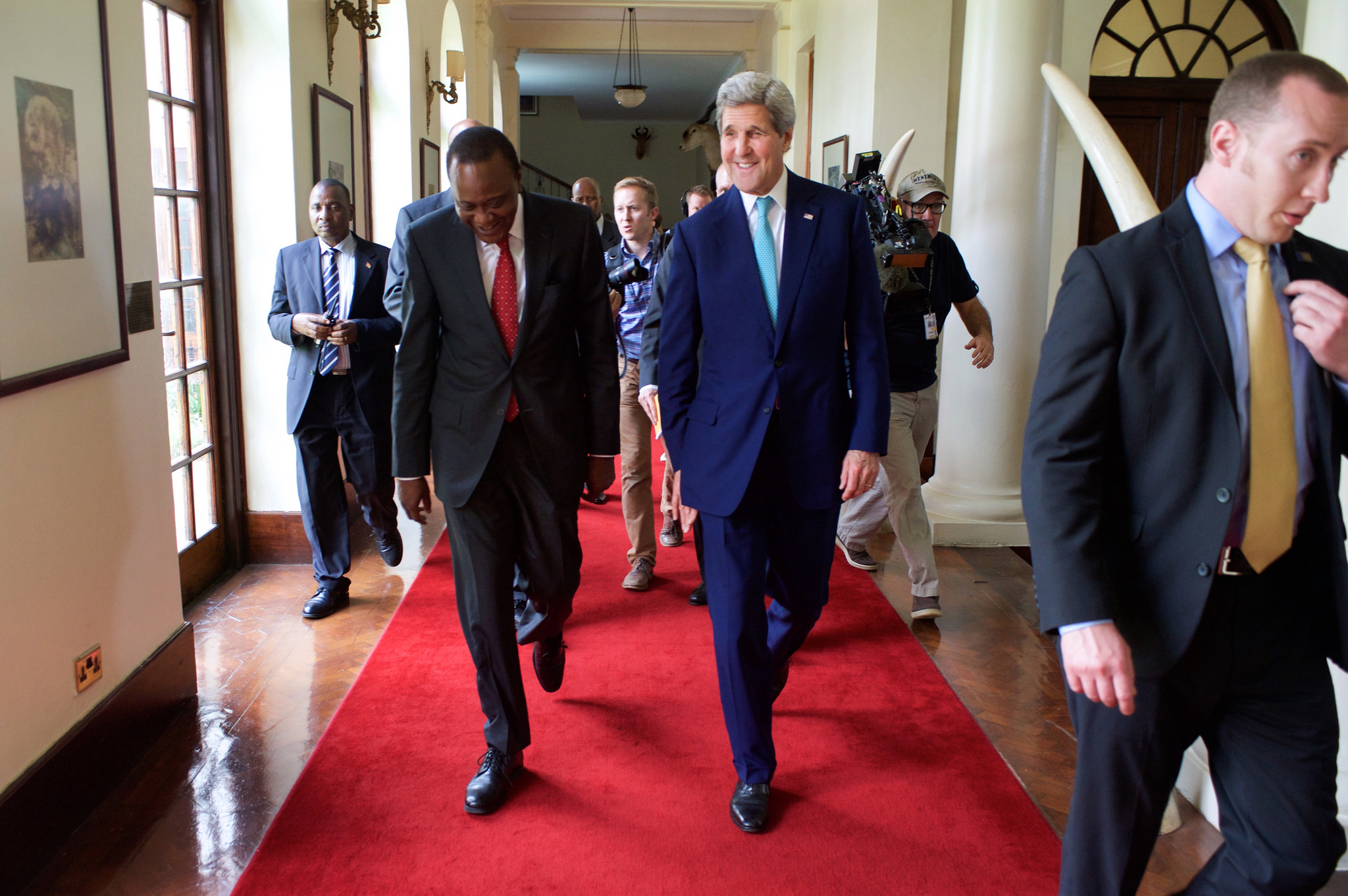 John Kerry talks with Uhuru Kenyatta in the State House in Nairobi, Kenya. https://flic.kr/p/sb4sgm
John Kerry talks with Uhuru Kenyatta in the State House in Nairobi, Kenya. https://flic.kr/p/sb4sgm
After a contentious election, Kenya’s supreme court made history on September 1st by rejecting the recent re-election of president Uhuru Kenyatta and by ordering a new vote. This decision marks the first time in Africa when an opposition party has successfully annulled a presidential election in court. Globally, there are only a handful of cases with the same ruling —the BBC came up with only three examples— a fact which garnered Kenya international acclaim and extensive media coverage. This came as a shock to the numerous media outlets who previously issued glowing praise for Kenya’s elections this year despite fraud in the Independent Electoral and Boundaries Commission (IEBC) and suspicious assassinations, of which the media were well aware.
It is important to recognize that post-election violence in Kenya has decreased since the last election. But this does not mean that progress stops here. The dismissal of corruption within Kenyan elections prior to the Court’s ruling reveals how the media hold African elections to lower standards than Western ones. In the recent U.S. election, every irregular action was heavily scrutinized in attempts to hold Donald Trump and Hillary Clinton accountable and to uphold democracy. African countries, in contrast, are awarded a gold star if they meet minimum human rights standards with the underlying assumption that it’s as good as it’s going to get. Actions that are strikingly unfair are viewed as commonplace in Africa, revealing the Afro-pessimistic sentiment that largely affects international news coverage of the continent.
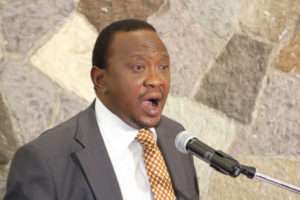
Kenya, however, turned Afro-pessimism on its head. While Western countries struggle to uphold their own democracies —while looking down on African governments— Kenya demonstrates that they are not only an up-and-coming economic force but a country committed to upholding its democracy. The world has something to learn not only from Kenya but also from how Kenyans continuously strive to improve.
The now-nullified election took place on August 8th between Kenyatta, the incumbent hoping to secure a second five-year term, and Raila Odinga. The use of social media and speeches on infrastructure investment characterized Kenyatta’s campaign. His opponent promised to fight corruption and create new jobs for Kenya’s youth. Other than similarities in political platforms and familial connections, the two candidates share a longstanding rivalry. Kenyatta’s father was the country’s first president; Odinga’s father was the country’s first vice-president. On top of this, Odinga has lost to Kenyatta in previous bids for president. The rivalry between these two men became most apparent in the 2007 election when Odinga claimed the vote was rigged. Two months of protests —often fought along ethnic lines— left 1,000 Kenyans dead and 500,000 displaced.
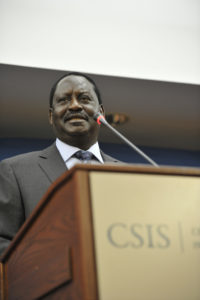
The 2017 election, then, became a test to see how far Kenya’s electoral process had progressed in the past decade. In the end, Kenyatta was declared winner with 54% of the votes. In contrast with prior elections, only 24 people were recorded dead in election violence. Nevertheless, Odinga’s allegations against the IEBC resurfaced and gained further credibility with the death of Chris Msando, acting director of the Information and Communications Technology. Msando was one of the few who had access to of Kenya’s new electronic vote count system —a system now known for its flaws rather than its innovation. Five days before the vote, as the IEBC struggled to explain why it printed an excess of over 1.2 million ballot papers, Msando’s body was found mutilated in a forest.
Though the IEBC failed to explain the ballot irregularities, the Supreme Court did so for them. Chief Justice Maraga of the Supreme Court said the electoral commission failed “to “conduct the presidential election in a manner consistent with the dictates of the constitution.” Irregularities were found on a third of the ballots, with many displaying results different from the totals announced by the electoral commission. Around five million votes were not verified. Supreme Court IT experts also discovered that, before and after the election, unauthorized users entered the electronic voting system.
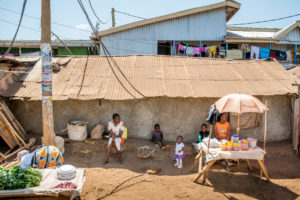
Kenyatta, as one can imagine, disagreed with the outcome, and the Supreme Court did not find him guilty of tampering with the votes. He still vowed to respect the decision and urged Kenyans to do the same. His main criticism was how six judges could “go against the will of the people.” However, on Twitter, a majority viewed the decision as victoriously democratic. #SupremeCourtDecides trended soon after the decision’s announcement, with many Kenyans sharing photos of the admired judges. Ambassadors from the United States, Canada, and various European countries also praised “Kenya’s resilient democracy and commitment to the rule of law” in a joint statement.
Before the court’s decision, however, these countries were issuing opposite statements. Prior to the annulment former U.S. Secretary of State John Kerry said he was “happy” with the “fair” election. Kerry, who is leading the Carter Center’s observation delegation, downplayed the evidence of corruption within the IEBC as “little aberrations here and there.” When accounting firm KPMG warned about the potential for pro-Kenyatta ghost votes due to the millions of deceased individuals still registered as voters, Kerry fired back: “The people who voted were alive,” he said, “I didn’t see any dead people walking around.” The shock value of his statement was further heightened when 24 election-related deaths were reported shortly after —deaths Kerry refrained from commenting on.
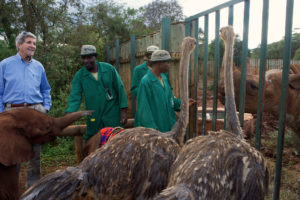
The international response to the negative aspects of Kenya’s election —or lack thereof, in the case of the 24 murders— shows that the world has set the bar dangerously low for African politics. Kenya’s elections have been fraught with violence; however, that does not mean that the country is unable to work towards a system of democracy that measures up to its principles. Afro-pessimistic sentiment —the notion that such “aberrations” are commonplace, unable to be changed, and thus acceptable— stifles hope for a higher quality of life in Africa. But widespread acceptance of the historic Supreme Court decision shows that hope is still very much alive.
Infringing on rule of law is unacceptable whether it occurs in Kenya or elsewhere in the world. Msando’s death deserved investigation, as did Odinga’s claims of corruption, rather than an international dismissal. What was found, evidently, was enough to undermine the core of Kenyan democracy. Kenya’s push to accept such evidence, to uncover the truth, and to assure justice is served reaffirms judicial independence and signifies progress —not only within Kenya or Africa but within the world.
